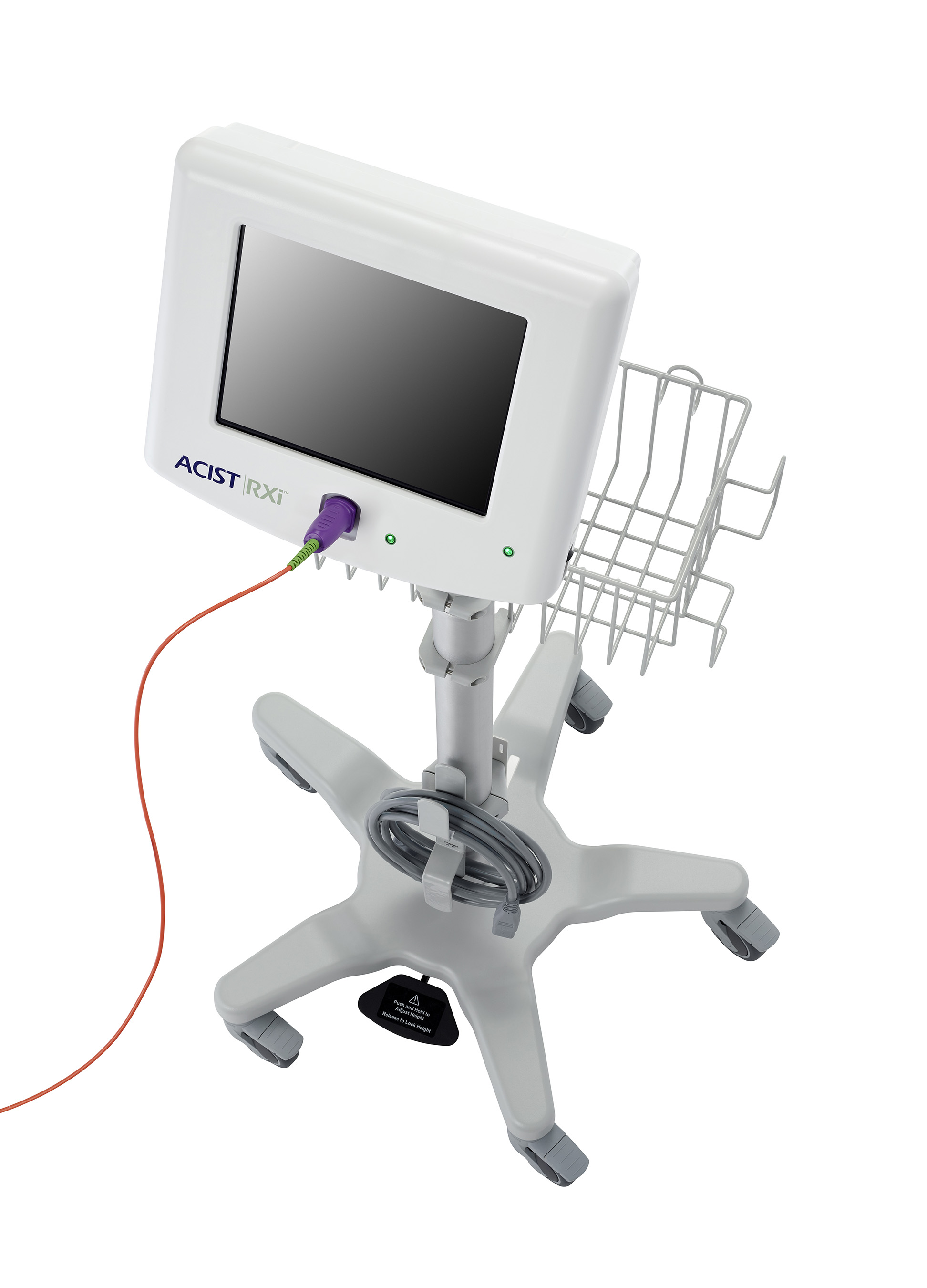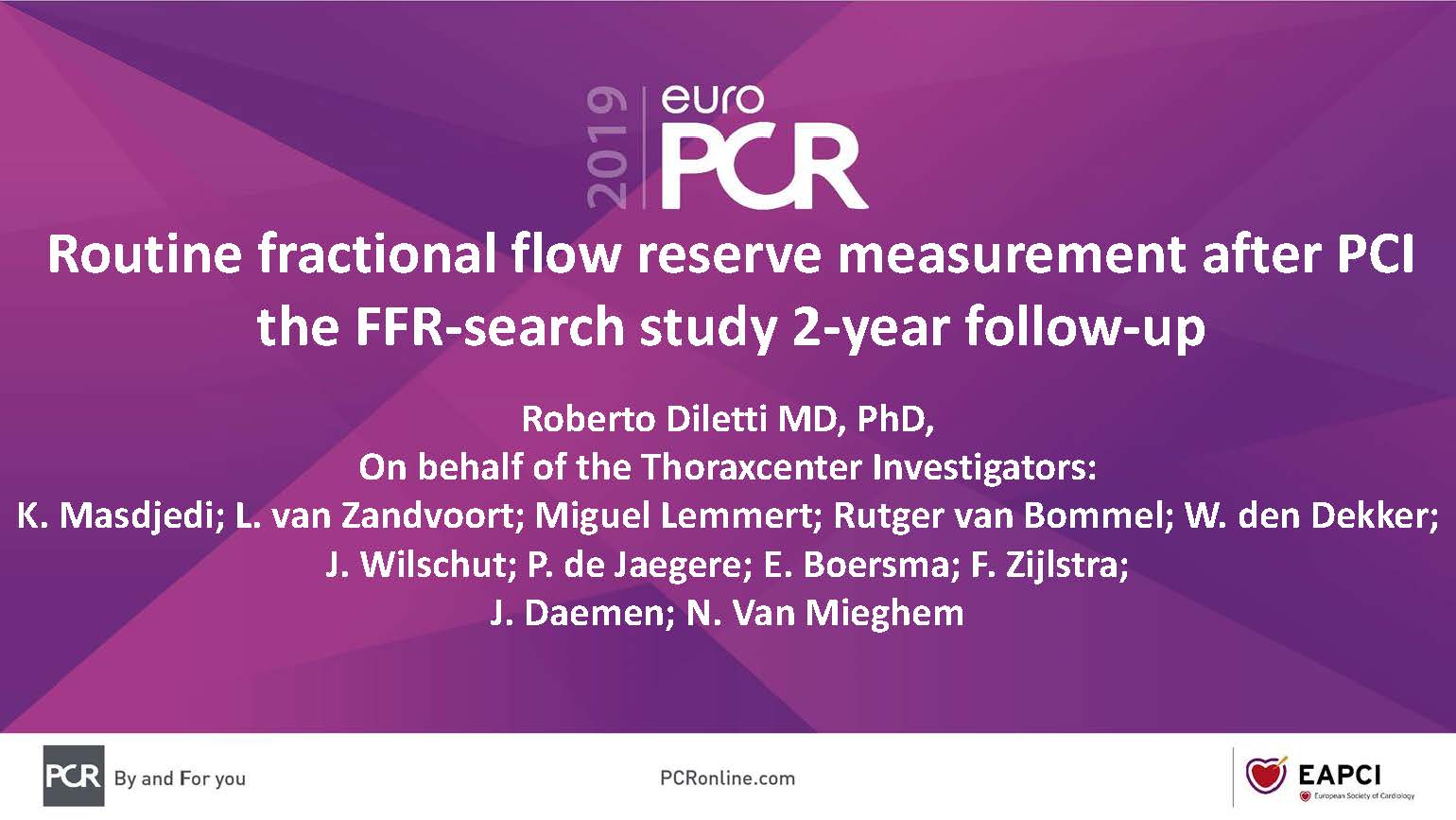Dr. Roberto Diletti from The Erasmus Center in Rotterdam, Netherlands, presented the results of the two-year follow-up analysis of the FFR-SEARCH observational registry during the EuroPCR conference in Paris.
|
EDEN PRAIRIE, Minn., June 20, 2019 /PRNewswire/ -- Dr. Roberto Diletti from The Erasmus Center in Rotterdam, Netherlands, presented the results of the two-year follow-up analysis of the FFR-SEARCH observational registry during the EuroPCR conference in Paris. The analysis evaluated the outcomes of patients and prognostic value of post-percutaneous coronary intervention (post-PCI) FFR assessment, indicating patients with a lower FFR post-PCI are more likely to experience a major adverse cardiac event (MACE). This registry was developed in collaboration with ACIST Medical Systems, a pioneering interventional and diagnostic technology company with a portfolio of advanced products for the cardiac cath lab, to understand the correlation between post-PCI FFR values and clinical outcomes in a real-world patient population. Post-PCI FFR has previously been demonstrated as a strong significant predictor of MACE. Suboptimal physiological results can often occur when relying on angiographic imaging alone, however, further testing using an FFR pullback or intravascular imaging can identify opportunities to optimize and ultimately improve the patient outcome. Experience the interactive Multichannel News Release here: https://www.multivu.com/players/English/8559551-acist-navvus-rxi/ Initial findings of the registry were shared following 30-day and 1-year analyses, showing that nearly 40 percent of patients had FFR values less than 0.90 following an angiographically-successful intervention. As was demonstrated in past FFR studies, there is significant mismatch between angiographic interpretation and physiological assessment. "The results of FFR-SEARCH are in-line with existing clinical evidence showing a clear trend towards increased event rates with lower FFR values following the evaluation," says Dr. Joost Daemen, Director of Coronary Physiology and Imaging at Erasmus MC in Rotterdam. "However, FFR-SEARCH is the first all-comer study on post-PCI physiological assessment representing the broad spectrum of patients as seen in routine clinical practice." Although statistical significance was not shown at the two-year primary endpoint, additional follow-on subgroup analysis, specifically for myocardial infarction (MI) and stent thrombosis events, may provide additional hypothesis-generating insights. FFR-SEARCH lays the foundation for future post-PCI clinical studies, including the FFR-REACT randomized control trial (Dutch trial register: NTR6711) evaluating outcomes when additional intervention is performed on patients with FFR values less than 0.90 using intravascular ultrasound (IVUS)-guidance. "The FFR-SEARCH observational registry is an important clinical investment for ACIST, which builds upon the existing clinical evidence supporting the use of our Navvus Rapid Exchange FFR Microcatheter and RXi System in a variety of applications," said Brad Fox, president and CEO, ACIST Medical Systems, Inc. "ACIST is proud to collaborate with Erasmus MC in answering these difficult clinical questions facing physicians today, and will continue to make these investments to improve patient outcomes." FFR-SEARCH is a robust and independent, physician-sponsored study that utilized a prospective all-comers registry and more than 1,000 patients who underwent successful PCI were eligible. The ACIST Navvus® Rapid Exchange Microcatheter and ACIST RXi® System is the only coronary physiology product which allows the use of the physician's workhorse guidewire of choice, enabling more efficient diagnostic and post-PCI physiological assessment because wire position is maintained throughout the procedure. The FFR-SEARCH study reported minimal time (<5 minutes) to assess physiology following the intervention using this microcatheter-based system. For more information about the ACIST Navvus Microcatheter and ACIST RXi Rapid Exchange FFR System, visit http://acist.com/us/products/acist-rxi-rapid-exchange-ffr-system/. About ACIST About Bracco Group





SOURCE ACIST Medical Systems |




